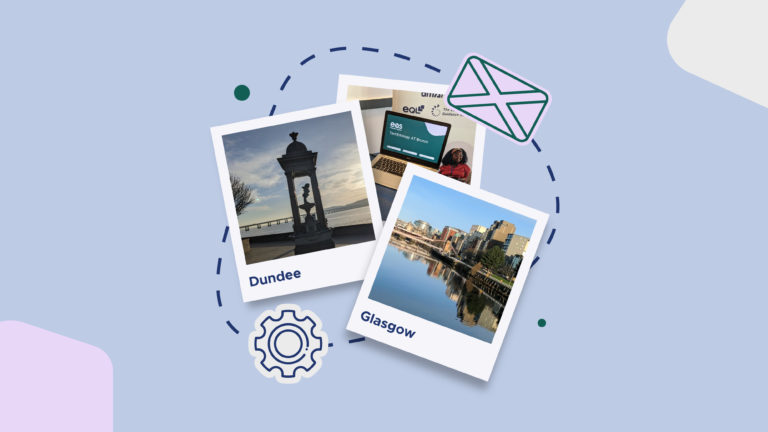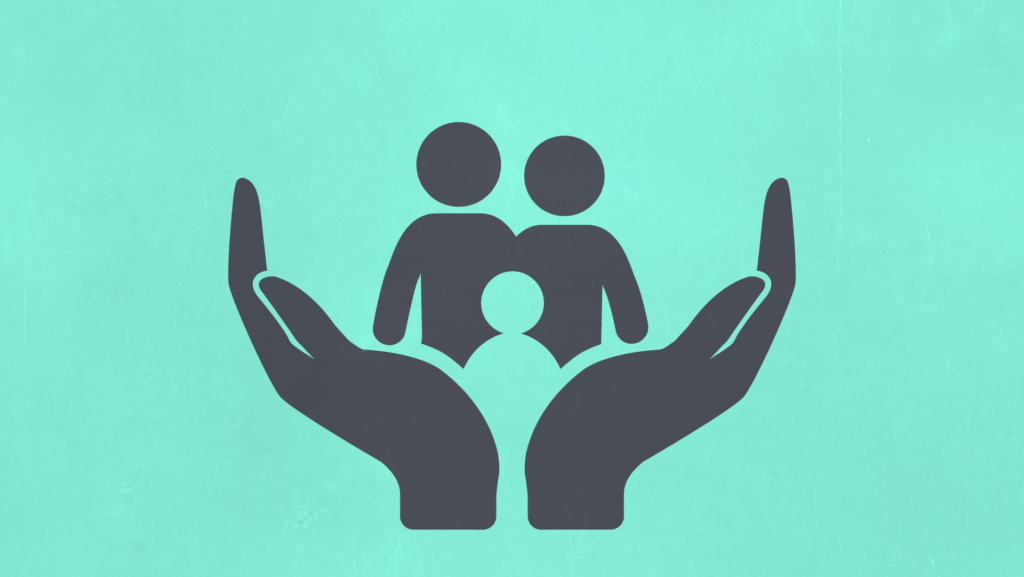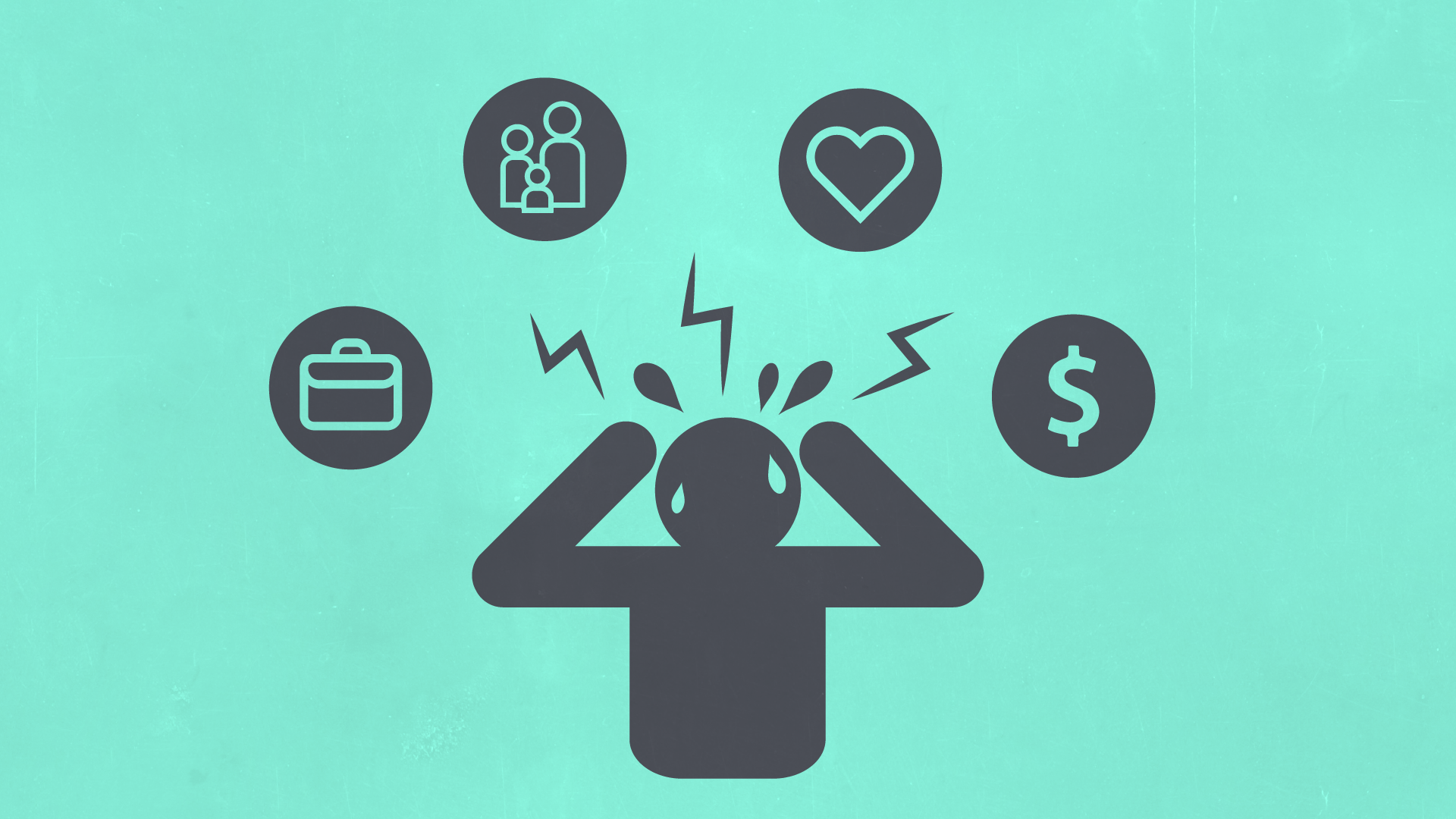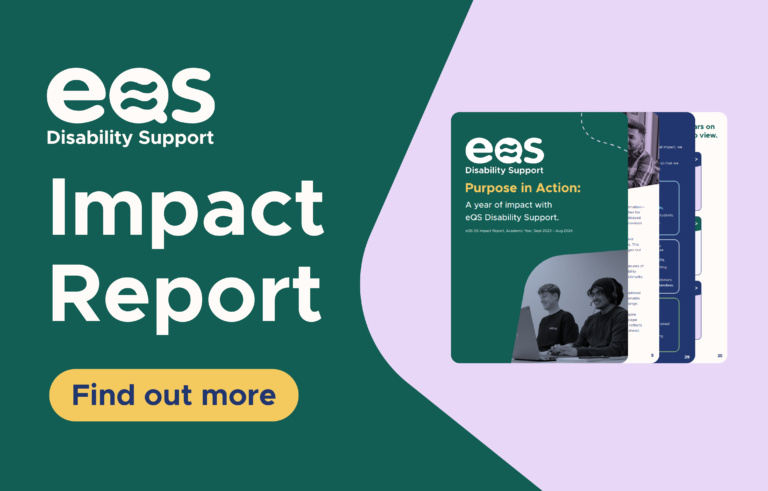
Swapping Webinars for Winter Sun: A Scottish Adventure
It’s great to get in front of ‘real’ people at an in-person event and have discussions that may not be as easy to have online during say a webinar of over 100 attendees.

The impact the pandemic has and will continue to have on our lives hasn’t truly been realised yet. As a population, UK adults’ mental health is continuing to be affected with rates of ‘feelings of life satisfaction’, ‘happiness’ and ‘feeling that things done in life are worthwhile’ all dropping with the early 2021 lockdown (Office for National Statistics, February 2021). However, this shift in perception has also opened up opportunity for re-evaluation. The workplace environment from previous years will not exist in the coming years – we are entering a new world of work – I believe we must embrace it if we want to thrive in this new world.

The global population’s sentiment is also diverging across countries, with expectations, perceptions and behaviours having all shifted as a result of COVID (McKinsey, 2020). This has a knock-on effect in life-related decision making. Three in five UK employees now want to make changes to their careers as a result of the pandemic, such as switching careers, learning a new skill or finding a new role within the existing organisation (Aviva, April 2021).
As individuals living in a world where being ‘always on’ and constantly connected has become the norm, it’s no surprise that we’re seeing increased stress levels and much higher frequencies in reports of burn-out across the globe. For too long now we’ve prided ourselves on fast-paced careers, seeing workplace phrases like ‘high-pressured’ and ‘demanding’ as a badge of honour.
So, how do we manage this as employers? The shifting employment landscape might feel daunting, but it can also be a powerful moment to create a supportive and inclusive working environment of the future, where people want to come to work and flourish.
It strikes me that we now have an opportunity to effect a wider change that will not only be welcomed by employees but is also likely to become the expectation. It’s not enough for us to expect our employees to come to us in times of need, and to speak up when things get too much – telling staff they are welcome to do this simply isn’t good enough (and in reality it probably never has been). Now is definitely the time to take a proactive approach to mental wellbeing, as well as create a culture that removes any taboos on speaking about mental health.
To date, as a leader in a business, I have always strived to create an open culture regarding mental health. I have personal experience in understanding mental health issues close-hand as I have two children both with differing hidden disabilities and mental health issues. Since the pandemic though, I think we have all had our mental wellbeing affected to some degree; I’m yet to meet someone who hasn’t. This is why it has made me reflect and realise we need to do more at eQS and build a formal structure of support for mental wellbeing in our workplace.

The way to do this is twofold; firstly, to provide a clear system of support and promote it to staff, and secondly, to continue to lead by example by proactively starting conversations around mental wellbeing and encouraging them to flourish in open format.
eQS has supported students in receipt of the Disabled Students Allowance (DSA, a Government fund for students with disabilities in Higher Education) for nearly two decades. Prior to the pandemic we were seeing increasing levels of mental health conditions cited as reasons for DSA. This led us to developing research in mental wellness and subsequently a digital learning, assessment and development tool for mental wellness (Learning Labs). The pandemic only exacerbated these issues with mental wellness, and not just in the disabled or student population. I’m in no doubt that mental wellness is now a pandemic in itself for the wider population and for employers, and I feel we must take this opportunity to make positive changes that proactively maintain staff wellbeing, reduce staff turnover and create a far more attractive ‘employer of choice’ reputation.
Our current focus at eQS as a group of companies is moving into the wider Equality, Diversity and Inclusion (ED&I) field of the commercial workplace sector. Having this close understanding of wellbeing and ED&I meant we quickly realised we needed to structure and communicate a clear mental wellbeing support system to our own staff.
Below I’ve shared an outline of our own internal mental wellbeing initiative at eQS. There is an abundance of free apps, resources and training available in the world, but the key was being clear on what we as a responsible employer should do and also should not do. We decided on this four-part initiative:
• Mental Health First Aiders (MHFAs): We are appointing an internal team of MHFAs and anyone at eQS can apply to become one. This involves an interview with HR to pick the best people for the job, then a full training programme and information pack to support the new MHFA candidates in their ongoing roles. Their role is to be a point of contact for any staff experiencing mental wellbeing or emotional issues and support them or sign post them to professional support (either through our company benefits package or the NHS – or a mix of both). It is not to offer counselling services or personal opinions and any discussions are treated in the strictest of confidence.
• Wellness Days: The pandemic has been tough and everyone has been affected, so this year, to acknowledge and counter this challenging time, all eQS employees have received one additional wellness day (an extra day of annual leave to be taken by end of June 2021).
• Learning Labs: All eQS employees will receive training and their own licence to Learning Labs, eQS’ e-learning portal for education and the workplace, covering assistive technology, mental wellbeing, accessibility, study skills and more. With a particular focus on encouraging staff to use the Mental Wellness Workspace regularly. This includes content on learning, assessing and developing personal mental wellness.
• Continuous Learning: All eQS employees are encouraged to learn about mental wellness with HR regularly sharing resources such as professionally run external webinars, Wellness Action Plan worksheets and new ideas from the world of mental wellbeing. eQS also runs monthly Lunch ‘n’ Learn workshops, with new topics and presentations added into the 2021 schedule focused on mental wellbeing.
I’m really keen to hear what measures other employers have implemented or are looking to implement, or of course share how our own initiative is being received at eQS. I’ve always found that by learning from peers and sharing best practice, we can lead positive changes in our vibrant and forward-thinking regional business landscape. As part of this series with NE Times, I’ll be sharing posts on my personal LinkedIn account to keep the conversation going. I hope together we can create an open platform for discussion around supporting staff wellbeing and inclusivity in the North East.
In my next article in this series, my focus is going to be on neurodiversity in the workplace. If you’re an employer who’s also passionate about championing neurodiversity in the workplace and can share any steps you’ve put in place to attract and support a diverse and inclusive team, I’d love to hear about them and include them in my next article for NE Times.
Share

It’s great to get in front of ‘real’ people at an in-person event and have discussions that may not be as easy to have online during say a webinar of over 100 attendees.

Purpose in Action: A year of impact with eQS Disability Support. eQS DS Impact Report, Academic Year, Sept 2023 – Aug 2024. Download the report. Our year in numbers Here’s

The release of our first-ever Impact Report is our statement of intent. We invite you to explore the report, share your thoughts, and join us in shaping a more inclusive future.
You can find us on LinkedIn for all the latest news, thought leading articles, events, career opportunities and more. We have two LinkedIn pages in the eQS Group and we would love it if you followed them all, but feel free to head to the page most relevant to your needs.
Necessary cookies are absolutely essential for the website to function properly. This category only includes cookies that ensures basic functionalities and security features of the website. These cookies do not store any personal information.
Any cookies that may not be particularly necessary for the website to function and is used specifically to collect user personal data via analytics, ads, other embedded contents are termed as non-necessary cookies. It is mandatory to procure user consent prior to running these cookies on your website.


